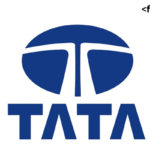In today’s digital age, technology is pivotal in our daily lives, from communication and entertainment to education and business. As technology advances rapidly, it’s essential to have a solid understanding of Information Technology and its impact on our society. This comprehensive blog is written to introduce you to the fundamental concepts, terminology, and principles of IT. If you’re a complete fresher or have some basic knowledge, this blog will provide a solid foundation to explore the exciting world of IT. So, let’s embark on this enlightening journey together and unlock the mysteries of Information Technology!

Initially, Let us know what Information Technology is
Information Technology (IT) refers to using, developing, and managing technology resources to process, store, transmit, and retrieve information. It encompasses various technologies, systems, and practices used to collect, organise, protect, and analyse data. It involves hardware and software components, including computers, networks, databases, applications, and telecommunications systems.
It is crucial in various domains, such as business, education, healthcare, entertainment, and government. It enables organizations and individuals to efficiently process and utilize information, automate tasks, streamline operations, and improve decision-making. What is information technology? From managing computer networks and developing software applications to ensuring data security and providing technical support, IT professionals contribute to effectively and securely utilizing technology in different situations.
Freshers have enough job opportunities in the IT sector, Henceforth, you can tap into freshers jobs in Bangalore.
Various parts of an IT Department
An IT department typically consists of three parts, each with specific freshers jobs to do within the company. Following are the three components of an IT department and what each one does, and the importance of information technology:
Governance
Computer networks at an organisation are installed and set up by IT specialists. Employees in information technology keep systems secure and debug them when a problem occurs. This section of the IT department can develop and implement procedures and rules that guarantee efficient IT systems that follow organizational requirements.
Operations
The IT department looks after a business’s computers and offers user support to the staff. They are always in charge of installing new software, resolving issues, and instructing staff members on properly using it. If you are recent graduate of B.Tech, you can look out for career opportunities after B.Tech Computer Science.
Infrastructure and Hardware
This department’s section handles the physical parts of IT. The staff in this section will be responsible for setting up and maintaining the company’s servers, routers, laptops, phone systems, and other IT equipment.
Required Skills Needed by IT Professionals
To succeed, an IT professional must combine hard and soft skills and several technical skills. The role of information technology employer seeks are:
IT soft skills
Strong written and spoken communication skills are essential for most IT positions because email correspondence will always play a significant role in your career. You must communicate effectively, having the basics of information technology with your coworkers and superiors to succeed as an IT professional. You will collaborate with them to improve user experience with hardware or software and resolve technical issues.
Organisation: Working on numerous projects at once is common in IT employment. Therefore, it’s critical to be organised to stay on schedule. In this sector, learning how to prioritise your tasks is also essential.
Analytical Skills: Analytical abilities enable you to recognise, identify, and resolve technical problems. Additionally, you may spot issues before they arise because of these skills. You should be able to recognise trends over time and key performance indicators when you use analytical skills.
Creativity: The capacity to use technology in a novel and creative manner is a crucial qualification in today’s IT employment. Being innovative in problem-solving is a quality that every employer values greatly.
Project management: The IT industry is full of obligations and projects with due dates. You can meet deadlines and complete tasks quickly with strong project management abilities. IT managers are frequently required to manage their project deadlines and keep their subordinates’ progress surprised.
Technical skills
Database Management: IT workers need to be able to use database software, fill out forms, and use built-in forms.
Network Administration: An information technology worker must be able to administer a company’s computer network efficiently.
IT Management: An IT professional’s first objective should be to manage a company’s diverse IT resources efficiently.
Since an organisation may need new software built by IT experts who deal with programming, software development is a crucial talent for individuals in IT operations.
Information Security: what is information technology? Keeping data private and secure takes up a significant portion of IT in commercial organisations. To succeed in information technology, an IT worker must possess a working grasp of this technical ability.
Programming languages must be known to code for websites, software development, database administration, and other technical systems by those who work in IT operations.
IT professionals dealing with hardware and infrastructure must understand how to configure and maintain hardware to provide the optimum user experience.
Operating Systems: Each organisation will employ a few different operating systems for its devices, so an IT expert should be familiar with their functionality and troubleshooting.
Why is Information Technology very Important?
The importance of information technology (IT) is incredible for several reasons:
Enhanced Communication: IT has revolutionised communication, enabling instant and efficient exchange of information through various channels such as email, video conferencing, instant messaging, and social media. It has connected people across the globe, breaking down geographical barriers and facilitating collaboration and knowledge sharing.
Increased Efficiency and Productivity: IT automates repetitive tasks, streamlines processes, and improves efficiency in various sectors. It enables the storage, retrieval, and analysis of vast data, allowing organisations to make informed decisions and optimise their operations. Information technology systems and software also enable faster and more accurate data processing, reducing human errors and improving productivity.
Access to Information: IT has democratised access to information and knowledge. The internet serves as a vast repository of information on virtually any topic, making it accessible to anyone with an internet connection. IT tools and technologies enable rapid and efficient search, retrieval, and dissemination of information, empowering individuals and organisations with valuable educational, research, and decision-making resources.
Business Advancement: IT has become an integral part of modern businesses, enabling them to innovate, compete, and thrive in today’s digital economy. It facilitates efficient management of operations, inventory, finances, and customer relationships through various software applications. Additionally, IT enables businesses to reach a broader audience through e-commerce, digital marketing, and online presence, opening up new growth and revenue-generation avenues.
Improved Healthcare and Research: IT has transformed the healthcare industry, allowing for electronic health records, telemedicine, remote monitoring, and precision medicine. It has improved patient care, diagnosis, and treatment outcomes, facilitating medical research and innovation. IT has also played a crucial role during global health crises by enabling the rapid dissemination of vital information and facilitating vaccine distribution.
Enhanced Security: Why information technology? As technology advances, so do the challenges related to cybersecurity and data protection. IT plays a critical role in safeguarding sensitive information, preventing unauthorised access, and mitigating cyber threats. Developing robust security measures, encryption protocols, and cybersecurity frameworks is essential to protect individuals, organisations, and critical infrastructure from cyberattacks.
IT Career Opportunities
IT offers many job opportunities, catering to individuals with different interests, skills, and backgrounds. As technology continues to evolve and permeate all the aspects of our lives, the high demand for IT professionals is ever-growing. Here are some prominent career paths within the field of new Information Technology:
Software Development and Engineering: Software developers and engineers design, develop, and maintain software applications and systems. They work with programming languages, frameworks, and development tools to create innovative solutions for various industries. This field’s specialisations include web development, mobile app development, game development, and software architecture.
Infosys, an IT giant, has lots of job openings in the IT sector, So you can start looking out for Infosys job openings.
Network and Systems Administration: Network and systems administrators manage and maintain an organisation’s computer networks and systems. They ensure network security, monitor performance, troubleshoot issues, and implement upgrades or enhancements. This role is critical in maintaining a stable and secure IT infrastructure.
Cyber Security: With the increasing frequency and sophistication of cyber threats, cybersecurity professionals play a vital role in protecting sensitive information and systems. They develop security protocols, implement defensive measures, conduct risk assessments, and respond to security incidents. Cybersecurity careers include cybersecurity analyst, ethical hacker, security consultant, and security architect.
Data Analysis and Analytics: Data analysts and scientists are in high demand as data becomes increasingly valuable with high freshers salary. They gather, analyse, and interpret large datasets to extract meaningful insights that inform business strategies, decision-making, and optimisation. Proficiency in data manipulation, statistical analysis, and machine learning techniques is essential in this field.
Cloud Computing: Cloud computing professionals with the basics of information technology work with cloud platforms and services to design, deploy, and manage cloud-based infrastructure for organisations. They ensure the scalability, reliability, and security of cloud environments and assist in migrating systems and applications to the cloud. Cloud architects, engineers, and administrators are some roles in this domain.
IT Project Management: IT project managers oversee the planning, execution, and completion of IT projects. They coordinate teams, allocate resources, manage budgets, and ensure projects are delivered on time and within scope. Strong organisational, leadership, and communication skills are vital in this role.
IT Consulting: IT consultants provide expert advice, tips and guidance to organisations on leveraging technology to meet their business objectives. They assess IT needs, recommend solutions, develop strategies, and assist in implementing technological initiatives. Information technology consultants often specialise in digital transformation, IT strategy, or enterprise systems.



